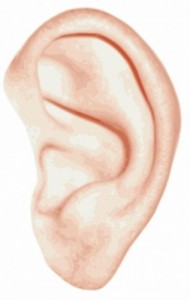This article is courtesy of PRWeb and the Harvard Men’s Health Watch, please share your thoughts in the comments section below…..
 Many people develop ringing in the ears, called tinnitus, along with hearing loss. There is no definitive cure for tinnitus, but some therapies can help people to tolerate it better.
Many people develop ringing in the ears, called tinnitus, along with hearing loss. There is no definitive cure for tinnitus, but some therapies can help people to tolerate it better.
Hearing a ringing sound when there aren’t any bells nearby may be tinnitus (pronounced tin-NIGHT-us or TIN-nih-tus), a hearing problem that affects up to one in 10 men (and women). For some, the ringing, hissing, buzzing, and other sounds of tinnitus are a minor distraction. For others, they are a serious problem that causes depression, insomnia, and difficulties with work and family life, reports the February 2015 Harvard Men’s Health Watch.
Most tinnitus arises from physical damage to sound-sensing cells in the inner ear. This damage causes these cells to send “sound” signals to the brain even when everything is quiet.
Everyone with ringing in the ears should see a specialist for a comprehensive evaluation to rule out potential physical causes such as problems in the brain or blood vessels. Some medications can also cause tinnitus symptoms.
“My recommendation is to get an annual audiogram,” says Dr. Eduardo Corrales, an instructor in otology and neurotology at Harvard-affiliated Brigham and Women’s Hospital. “Is your hearing getting worse? Your tinnitus may also get worse.”
A variety of treatments are available. Some have been proven to work, some haven’t yet been proven, and others don’t work at all. Here are recommendations for possible treatments from the American Academy of Otolaryngology — Head and Neck Surgery:
Recommended: evaluation for a hearing aid; cognitive behavioral therapy to improve tinnitus coping skills.
Consider as an option: artificially generated sound, sometimes from a device worn on the ear, to alter the perception of or reaction to tinnitus.
Not recommended: prescription medications such as antidepressants, tranquilizers, antiseizure drugs, or steroid injections; dietary supplements such as Ginkgo biloba, melatonin, or zinc.
No recommendation for or against: acupuncture, biofeedback, or other stress-reduction approaches. These may work for some people, but haven’t been fully evaluated in clinical trials.
Read the full-length article: “Ringing in the ears? Get it checked”
Also in the February 2015 issue of the Harvard Men’s Health Watch:
* Relief from upset stomach
* When is it time to consider a total knee replacement?
* Who benefits from lung cancer screening?
The Harvard Men’s Health Watch is available from Harvard Health Publications, the publishing division of Harvard Medical School, for $20 per year. Subscribe at http://www.health.harvard.edu/mens or by calling 877-649-9457 (toll-free).
